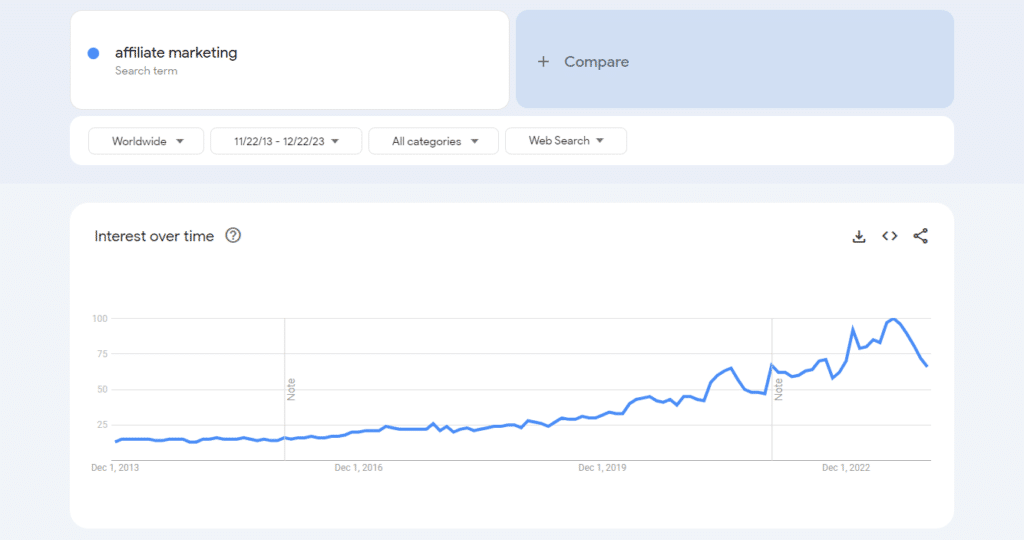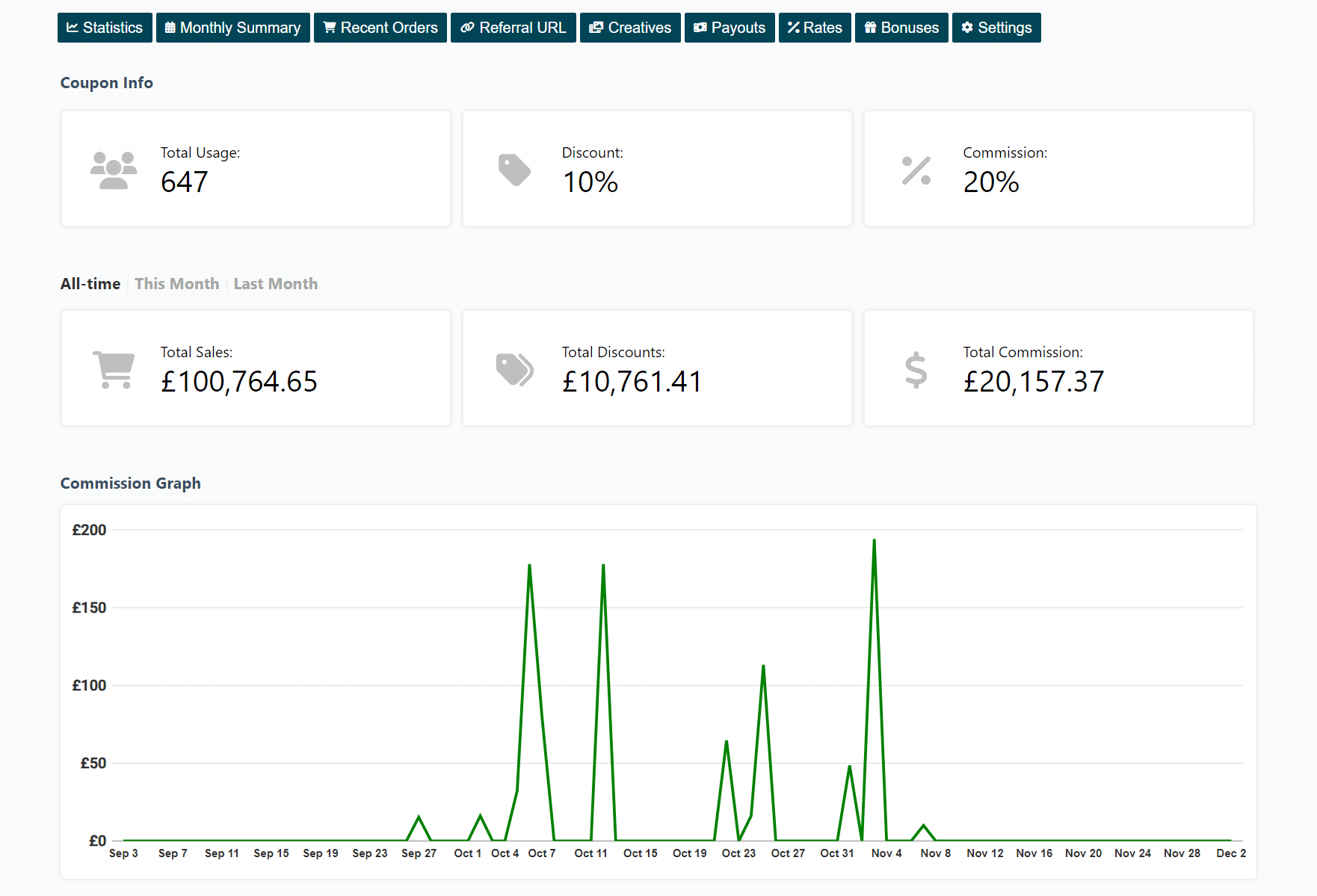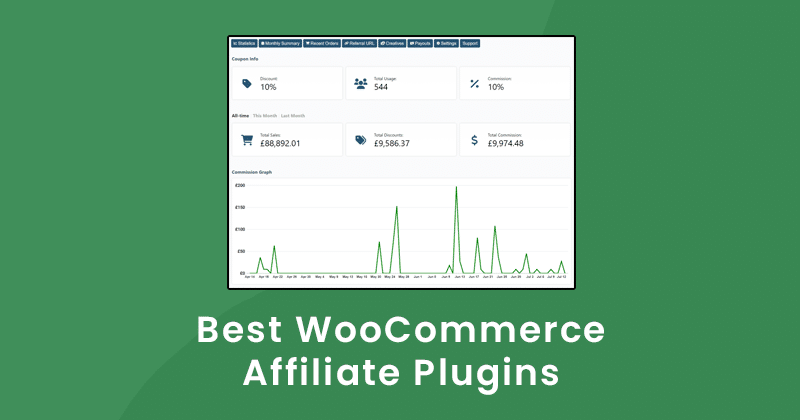Is affiliate marketing worth it in 2025? The verdict
Listen to the audio version of this article (AI).
There’s been a ton of hype around affiliate marketing over the years.
If you’re thinking about starting or growing an affiliate program for your online business, you’re probably a little skeptical about whether affiliate marketing still works today and if it’s the right option for your business.
You may be thinking: Is affiliate marketing worth it? Does affiliate marketing really work for brands? Is affiliate marketing dead? Can you really make money with affiliate marketing?
Fortunately, you don’t need to wonder anymore. We’ve combed through the data, and in this post, we’ll discuss whether affiliate marketing is still worth it in 2025.
It’s time to explore the question:
Is affiliate marketing worth it?
Affiliate marketing is worth it if you have good-quality products or services, a proper strategy, and the right tools to create and manage your affiliate program.
But don’t just take our word for it. Google Trends shows worldwide interest in affiliate marketing has steadily risen for the last ten years.

And that’s not all. The stats below prove affiliate marketing is worth investing in for brands.
Key stats that show affiliate marketing is worth it
- Affiliate marketing drove 16% of all internet orders in the U.S.
- 81% of businesses use affiliate marketing programs to boost brand awareness and sales.
- Globally, the affiliate marketing industry is expected to reach a market size of $27.78B by 2027.
- Affiliate marketing is rapidly growing at a rate of 10% year-over-year.
Clearly, affiliate marketing one of the most powerful marketing channels for online businesses.
However, it’s worth noting that sustainable affiliate marketing success takes effort, time, and patience. It isn’t a get-rich-quick strategy (although technically, you can make a lot of money in a short time).
Businesses that invest in recruiting high-quality affiliates and improving their affiliate programs tend to succeed with affiliate marketing. So, yes, affiliate marketing works. However, some factors affect the question: Is affiliate marketing worth it?
Below, we’ll look at key indicators to help identify whether affiliate marketing is the right fit for your business.
When affiliate marketing is worth it
Affiliate marketing is worth integrating into your online business in the following scenarios:
You have good quality products and services
Your offerings don’t have to be the absolute best in the world (and let’s face it, the definition of ‘best’ can be subjective).
To ensure your products and services are up to snuff, compare them with similar offerings and fix their apparent flaws and issues.
People have a positive perception of your business
Start cultivating an online presence if your business is relatively new. Create accounts on LinkedIn, X (formerly Twitter), Instagram, Pinterest, and other prominent social media sites. Claim your Yelp and Google My Business profiles. Engage with people online and build an engaged community.
If your business has acquired a largely negative reputation, address people’s concerns and repair your brand image.
You have a long-term perspective
Affiliate marketing can deliver immediate results for some businesses.
For most businesses, however, it takes time to gain momentum. Affiliate marketing might not be the best fit if you’re looking for a quick-fix marketing channel.
But it can be highly rewarding if you’re patient and focused on long-term, consistent sales and revenue growth.
When affiliate marketing isn’t worth it
As of this writing, over 4,500 businesses trust our affiliate marketing plugin, Coupon Affiliates, to power and manage their affiliate programs.
Clearly, we’re big fans and advocates of affiliate marketing.
But even we have had to accept that affiliate marketing may not be the best fit for every business, every time.
Here are some situations where affiliate marketing may not be worth it.
You’re looking for instant results
Affiliate marketing can deliver results from day one.
But most businesses won’t see massive results overnight. And, especially in the beginning, when your program is new, you may need to adjust your messaging, how you recruit affiliates, market your affiliate program, and more.
After you’ve created your program, it may take a few days before the sales start pouring in. But if you stick with it, the good news is that you can get incredible results once your affiliate program gains momentum.
That’s why it’s crucial to approach it with a long-term perspective and realistic expectations. If not, it’s easy to get frustrated and quit before your program takes off.
Your business or products have a negative reputation
Top-notch affiliates are more likely to promote high-quality products and services from trustworthy businesses.
If your business has a poor reputation or your products aren’t up to the mark, affiliates may hesitate to align themselves with your brand.
Before creating an affiliate program, make sure you:
- Fix major product or service issues.
- Address key customer concerns.
- Start building a positive brand image.
You’re targeting the wrong affiliates
Affiliates who aren’t genuinely interested in or knowledgeable about your niche may struggle to promote your products effectively. For example, if you sell sports gear, don’t target affiliates focusing on food.
Here’s why: people trust recommendations from credible people. The easiest way for affiliates to build credibility with their audience and convincingly market your offers is by sharing products and services they care about and have experience with.
Your affiliates don’t have to be certified experts in your niche. But to inspire trust, they should be more familiar with it than the average person.
Inadequate communication and support for affiliates
Misunderstandings can quickly arise without clear communication channels and ongoing support for affiliates.
Be upfront about how your affiliate program works, commission rates, guidelines, and other vital details with affiliates before they join your program. Once they’re accepted into your affiliate program, provide banners, creatives, and other marketing collateral for promotion.
Communicate regularly with affiliates and address concerns promptly if they do arise.
You’re not using the right affiliate marketing tool
Using the wrong affiliate program software can negatively impact your affiliate marketing program.
For one, if your chosen tool is not user-friendly, affiliates may struggle to navigate and use the platform. This can prevent them from promoting your offers.
If the software lacks robust tracking features, you might be unable to monitor affiliates’ performance accurately. This can lead to commission-related disputes and payment delays and prevent your ability to make data-based business decisions.
The right affiliate marketing tool should be easy to use and handle all the heavy lifting of managing your affiliate program so you can focus on scaling your program.

FAQs: Is Affiliate Marketing Worth It?
Let’s answer some common questions about whether affiliate marketing is worth it.
What is affiliate marketing?
With affiliate marketing, individuals or websites (known as affiliates) earn commissions by promoting your products or services to their audience using coupon codes and affiliate links.
Think of it like having online partners who help sell your products or services in exchange for rewards.
Here’s a brief overview of how affiliate marketing works
- You create your affiliate program by adding an affiliate marketing plugin or software to your website.
- Then, you invite other people, called affiliates, to join your affiliate program. These affiliates could be bloggers, social media influencers, other websites, or anyone interested in promoting your offers.
- When an affiliate shares your products using their unique coupon code or affiliate link and someone clicks on it, the affiliate plugin tracks that link click or code usage.
- If the person who clicked the link buys something from your website, the affiliate earns a commission for bringing in the customer.
Affiliate marketing is a popular strategy where both you and your affiliates benefit. They earn commissions by promoting your products, and you get more sales without spending on advertising upfront.
Can you really make money with affiliate marketing?
The genius of affiliate marketing is that you only pay affiliates when there’s a sale made via their code or affiliate link.
Businesses pay for actual results instead of spending a big chunk of money on paid ads and other marketing channels. It’s a low-risk, high-reward marketing strategy.
Is affiliate marketing dead?
Affiliate marketing isn’t dead. It continues to be a popular and effective way for online businesses to market their products and services.
Research on online shopping behavior shows that affiliate marketing will continue to grow. Worldwide, the affiliate marketing industry is estimated to increase by 10% each year and will reach $27.78B by 2027.
Is affiliate marketing still profitable?
Affiliate marketing has proven to be a profitable strategy. Many successful online businesses rely on affiliate programs to amplify brand awareness and reach new customers.
Businesses appreciate affiliate marketing because it’s a cost-effective model. You only pay for actual sales or desired actions, making it an effective marketing channel.
Conclusion: Is affiliate marketing worth it in 2025?
Affiliate marketing may not work well for your business if you’re looking for a marketing channel that delivers instant results.
However, if you have high-quality products and services, proper tools, a good strategy, and a long-term perspective, you could find affiliate marketing extremely lucrative.
Thinking about creating your affiliate program? Check out Coupon Affiliates.
Since 2019, more than 5,800 websites — ranging from eCommerce stores to e-learning and membership sites and more — have used Coupon Affiliates to create successful affiliate programs. Many customers called it the best affiliate marketing plugin. Check out the free version or get the premium version (with a 7-day free trial).
Priyanka is a writer for WordPress and eCommerce companies. She loves breaking down complex ideas into simple concepts.




Leave a Reply